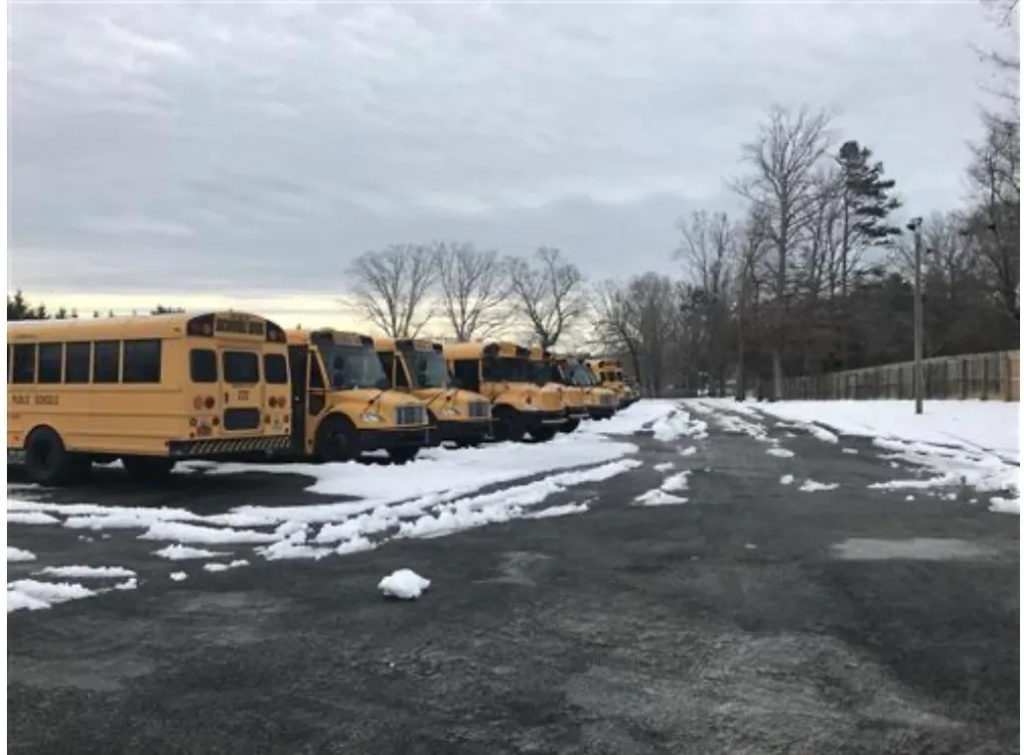Duncan Brown
Editor-in-Chief

Early mornings, a time of perpetual brushing, hushing, and, most dire, rushing. Yet, the icy and cold North Carolina winters add another timely element to these already chaotic mornings.
At R.J. Reynolds High School and other schools across the county, this slight morning headache takes on a new meaning as faculty are tasked with ensuring the safety of students, even with the unique winter cycles in Forsyth County. Anthony Grier, an Assistant Principal at Reynolds, is one of the various voices behind these decisions.
“Our district operations department monitors the local weather forecast as well as road conditions throughout the county when we have inclement weather,” Grier said. “Forsyth County is in a unique position where the northern and western parts of our county border the Foothills, while the southern and eastern parts border our more populated Piedmont areas. This creates variation in winter precipitation totals due to the differences in terrain.”
Throughout his career, Grier has had some hazardous run-ins with the county pushing the threshold on keeping schools open despite the conditions—Grier, a teacher and bus driver in a previous job, shares an insight into how truly the dangers of the road can be.
“On March 7th, 2014, we had rain that quickly changed to a mix of freezing rain, snow, and sleet around 6 am, thirty minutes after starting morning routes,” Grier said. “The icy roads caused one of my colleagues to lose control of his bus, sliding down an embankment into a natural gas substation, rupturing a gas line. There were three students on board, and thankfully, there were no injuries to the students or the driver.”
Additionally, car upkeep during the winter months is crucial to the longevity and performance of any vehicle. Amelia Bergman, a junior at Reynolds who co-owns Dune Detailing and has years of experience working in and around cars, provides some insight into her recommended preventative measures.
“Driving on the roads in the winter, there is salt on about every road, so it can get stuck in the undercarriage of your car and mess up the mechanics of everything,” Bergman said. So, when detailing, not a lot of people think about how you’ve got to go underneath the car, and a lot of car washes will do that, but not [commerical]detailers, which can lead to rust.”
Along with the outstanding dangers of winter driving, coupling that with being a teen driver new to the road can sometimes be terrifying. This is the case for senior Landon Fitzgerald, who lives on the westernmost side of the county and, like many other students, has taken full advantage of the magnet program. This has allowed students to have the opportunity to make these commutes, yet the duration of their drive can lead to increased danger on the road as many live in more rural areas, which aren’t given the same winter road care as other areas.
“The drive from my house is already twenty-five minutes without traffic,” Fitzgerald said. “So I have to leave early enough, and walking outside and seeing my car covered in frost always frustrates me, no matter how often it happens.”
Determining whether or not to cancel or delay school in unfit weather conditions runs the risk of danger on the road. The variety of climates that cover the county can be tricky and must be taken with the utmost caution, often erring on the safe side.
When tasking new drivers from all across the county with making their morning commutes, it is prudent to ensure everyone is safe—doing an adequate job of scraping your car, even when it leads to tardiness. The numerous behind-the-scene procedures speak to the county’s precautionary measures when promising safety, especially in Winston-Salem’s winter months.